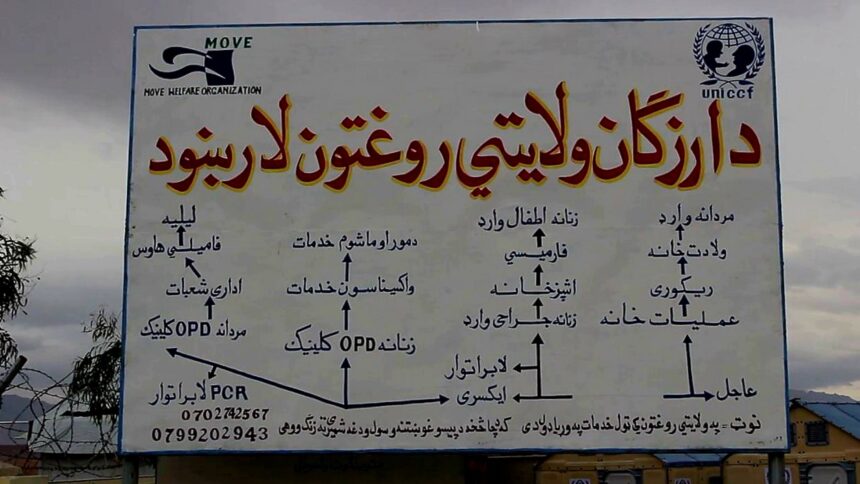Nimroz province has long had a high number of drug users. Poverty, unemployment, lack of government attention, and easy access to narcotics have led many—especially young men and fathers—to become addicted.
The growing number of drug users in the province has not only worsened family poverty but also robbed children of their childhood. Many have been forced into hard labor to support their families.
Child laborers in Nimroz say that many of the children working in tough jobs have fathers who are addicted to drugs or were killed in the conflict.
Fifteen-year-old Nabiullah works in a construction materials factory in Zaranj city. He earns 5,000 Afghanis a month. His father is addicted to drugs, and Nabiullah says he has to earn not only for food but also to pay for his father’s daily drug needs.
“My father has spent everything on drugs. At the factory, I earn 5,000 Afghanis a month. My brother works with a doctor and earns 3,000 Afghanis. Every day, we buy 30 Afghanis worth of drugs for our father. If we don’t, he kicks us out of the house, saying we are not his sons,” Nabiullah explains.
Thirteen-year-old Sedi Yasin says his family has four members, including his sick mother and drug-addicted father. He works every day until evening—sometimes cleaning windows, sometimes collecting plastic.
“I make sure to bring both food for my family and some cash for my father’s drugs. My mother always tells him not to take money from me, but he doesn’t listen,” Yasin says.
Civil Activists Raise Concern
Local activists in Nimroz say that, compared to other provinces, more children here are deprived of their basic rights.
Ahmad Rashad Amani, a civil society activist, urges both the current government and the international community to help these children.
“Our children are missing their most basic rights. They can’t go to school, they don’t have proper food, and they live in fear. If we don’t help them today, tomorrow our society will face a generation lost to addiction,” Amani warns.
Health Experts on Long-Term Impact
Dr. Rahmatullah Payenda, a mental health specialist, says that children forced into hard labor face severe physical, mental, and emotional harm.
“Children who work from a young age—75% never finish school, and 50% grow up with chronic mental stress. Many also face domestic violence and are at risk of addiction themselves,” he says.
He adds that today’s child laborers—collecting plastic, cleaning glass, or carrying heavy loads—are at high risk of becoming uneducated, unemployed, and even involved in drug trafficking or crime in the future.








